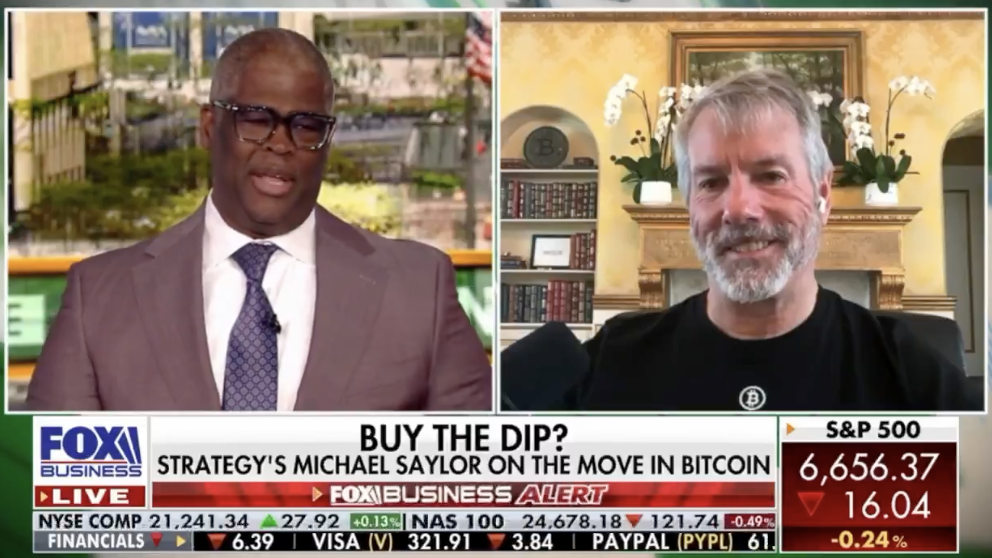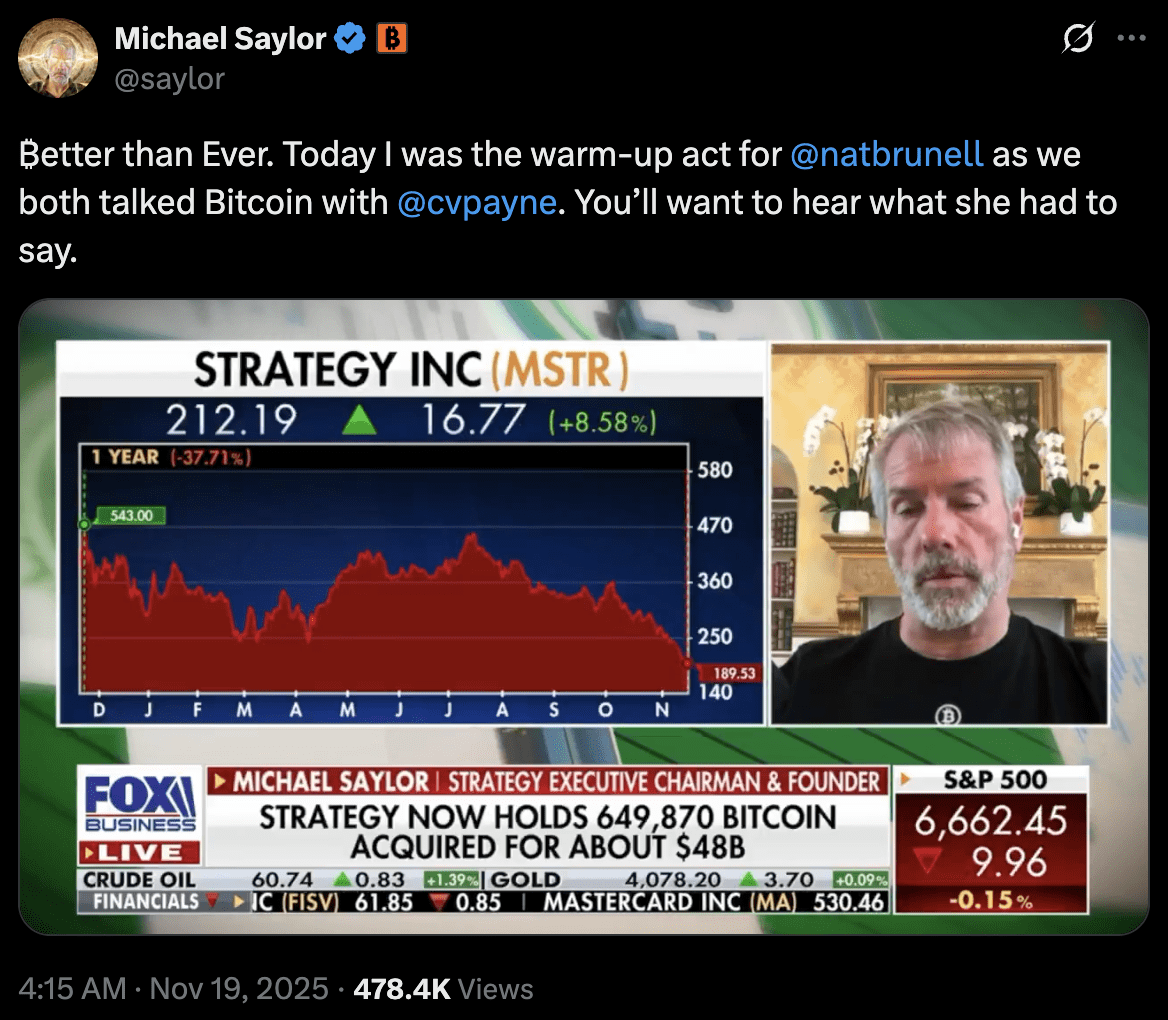
Bitcoin has dropped 15% in the past month, once falling below $90,000, and MicroStrategy's stock price has plummeted 30% in a single month, sparking market discussions. Founder Michael Saylor emphasized that Bitcoin's volatility will gradually decline with maturity, and the company can withstand a drop of 80% to 90%. However, well-known gold bull Peter Schiff countered that 'MicroStrategy will ultimately go bankrupt.'
Saylor is not worried about Wall Street entering: volatility is steadily declining
Even though Bitcoin has retraced its cumulative gains since 2025 this week, Saylor still expressed optimism during an interview with Fox Business.

He believes that the market generally misunderstands the pressure that Wall Street's entry into Bitcoin has caused; in fact, volatility is steadily declining. He recalls that when the company first bought BTC in 2020, Bitcoin's annualized volatility was about 80%, and it has now dropped to around 50%.
He expects that every few years in the future, Bitcoin's volatility will decrease by another five percentage points, eventually reaching a level of '1.5 times the volatility of the S&P 500 index, but with 1.5 times the return'. In other words, institutional funds' entry will not become a source of volatility but rather a part of maturation.
(MicroStrategy makes a big bet on Bitcoin, holding nearly 650,000 BTC, target price $585)
MicroStrategy's mNAV has declined, and the stock price has halved in a month; Saylor: Not afraid of a 90% drop.
With the decline in Bitcoin, MicroStrategy's holding strategy is once again under scrutiny.
SaylorTracker data shows that MicroStrategy currently holds about 64.9 bitcoins, worth over $5.96 billion. The company's mNAV has fallen from about 1.52 times to 1.11 times since Bitcoin reached an all-time high of $125,000 in October.

In terms of stock prices, $MSTR has dropped 30% in the past month and 50% in six months; however, Saylor has not shown weakness due to the market correction:
MicroStrategy is meticulously designed; even if it endures a 80% to 90% drop, it can continue to operate. We can say it is almost unbreakable.
He also added that the company's leverage ratio is gradually decreasing, and its capital structure remains robust under pressure.
Rival sings low: Peter Schiff claims MicroStrategy will ultimately go bankrupt.
Saylor's optimistic remarks quickly attracted the ridicule of his old friend, gold bull Peter Schiff. He has always viewed Bitcoin as a bubble and criticized MicroStrategy this time as a 'fraud company'.
He stated that MicroStrategy's preferred stock yield will be difficult to sustain and predicts that the company will ultimately go bankrupt.
I can't see how MicroStrategy can escape bankruptcy; those interests simply won't be paid.
(Bitcoin is expected to depreciate by 40% against gold in 2025, economist Schiff: Sell Bitcoin!)
Data offensive and defensive: Schiff criticizes Saylor for selectively using data to beautify performance.
Schiff also specifically named the data cited by Saylor, criticizing him for stating that Bitcoin has averaged a 50% increase over the past five years, and MicroStrategy even reached 70%: 'This calculation method is significantly inflated by the extreme bull market in 2020, and is just a typical case of 'cherry-picking years to beautify performance'.
He pointed out that the average annualized return of Bitcoin from 2020 to 2025 is indeed correct, but if extended to 2021 to 2025, Bitcoin's annualized return is actually less than 20%: 'In the past year, Bitcoin has been almost flat, while MSTR has dropped nearly 50%.'
Schiff believes that Saylor's reluctance to discuss the past year's performance is an intentional way to obscure risks, causing investors to overlook MicroStrategy's capital structure.
Now, the confrontation between Saylor and Schiff symbolizes the market's inconsistent attitude towards Bitcoin at its current stage. What can be expected is that these debates will continue indefinitely.
This article states that Saylor is not afraid of a 90% drop in Bitcoin: 'MicroStrategy is unbreakable', Schiff is pessimistic: it will ultimately go bankrupt. First appeared in Chain News ABMedia.

